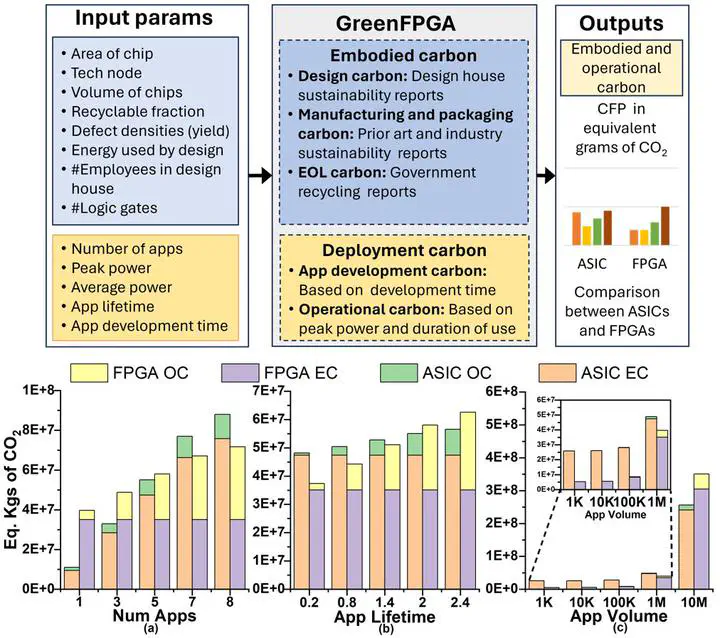GreenFPGA: Evaluating FPGAs as Environmentally Sustainable Computing Solutions
 GreenFPGA
GreenFPGAAbstract
Growing global concerns about climate change highlight the need for environmentally sustainable computing. The ecological impact of computing, including operational and embodied, is a key consideration. Field Programmable Gate Arrays (FPGAs) stand out as promising sustainable computing platforms due to their reconfigurability across various applications. This paper introduces GreenFPGA, a tool estimating the total carbon footprint (CFP) of FPGAs over their lifespan, considering design, manufacturing, reconfigurability (reuse), operation, disposal, and recycling. Using GreenFPGA, the paper evaluates scenarios where the ecological benefits of FPGA reconfigurability outweigh operational and embodied carbon costs, positioning FPGAs as a environmentally sustainable choice for hardware acceleration compared to Application-Specific Integrated Circuits (ASICs). Experimental results show that FPGAs have lower CFP than ASICs, particularly for multiple distinct, low-volume applications, or short application lifespans.